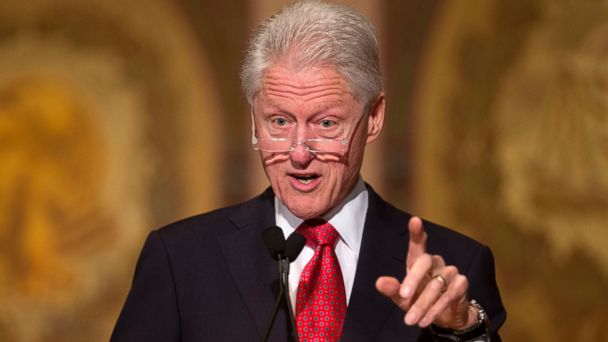Bill Clinton Accuses Political Press Of 'Blindness'

AP Photo
By SHUSHANNAH WALSHE and LIZ KREUTZ
Former President Bill Clinton joined his wife Hillary Clinton today in criticizing the press for the way it covers politics, with the former president arguing that the press "borders on blindness" when the facts don't conform to a particular story line.
Bill Clinton made his comments today at a lecture he gave at Georgetown University. Hillary Clinton made her remarks last week at the University of Connecticut.
"One of the problems is if a policymaker is a political leader and is covered primarily by the political press, there is a craving that borders on addictive to have a storyline," Clinton said at the beginning of a lecture he gave on policy at his alma mater. "And then once people settle on the story line, there is a craving that borders on blindness to shoehorn every fact, every development, every thing that happens into the story line, even if it's not the story."
Clinton told the audience, "I think that it's very important to understand we live in a time when, for a whole variety of reasons, policy making tends to be dimly understood, often distrusted and disconnected from the consequences of the policies being implemented."
Clinton said he has "felt that most intensely in the development, the passage, and the implementation of the Affordable Care Act, but I also feel it in many other areas as well."
The former president gave a nearly two hour lecture on policy focusing on the economy and his 1993 economic program, as well as a detailed inside look into his role and view of the Middle East peace process during his time in office.
Clinton seemed to echo comments his wife, former Secretary of State Hillary Clinton made just last week when she also criticized the press at a speech to students at the University of Connecticut, calling the "entertainment-driven" approach to news "not good for the country and not good for journalism."
"A lot of serious news reporting has become more entertainment-driven and more opinion-driven, as opposed to factual," Mrs. Clinton said. "People book onto the shows political figures, commentators who will be controversial, who will be provocative, because it's a good show. You may not learn anything, but you might be entertained."